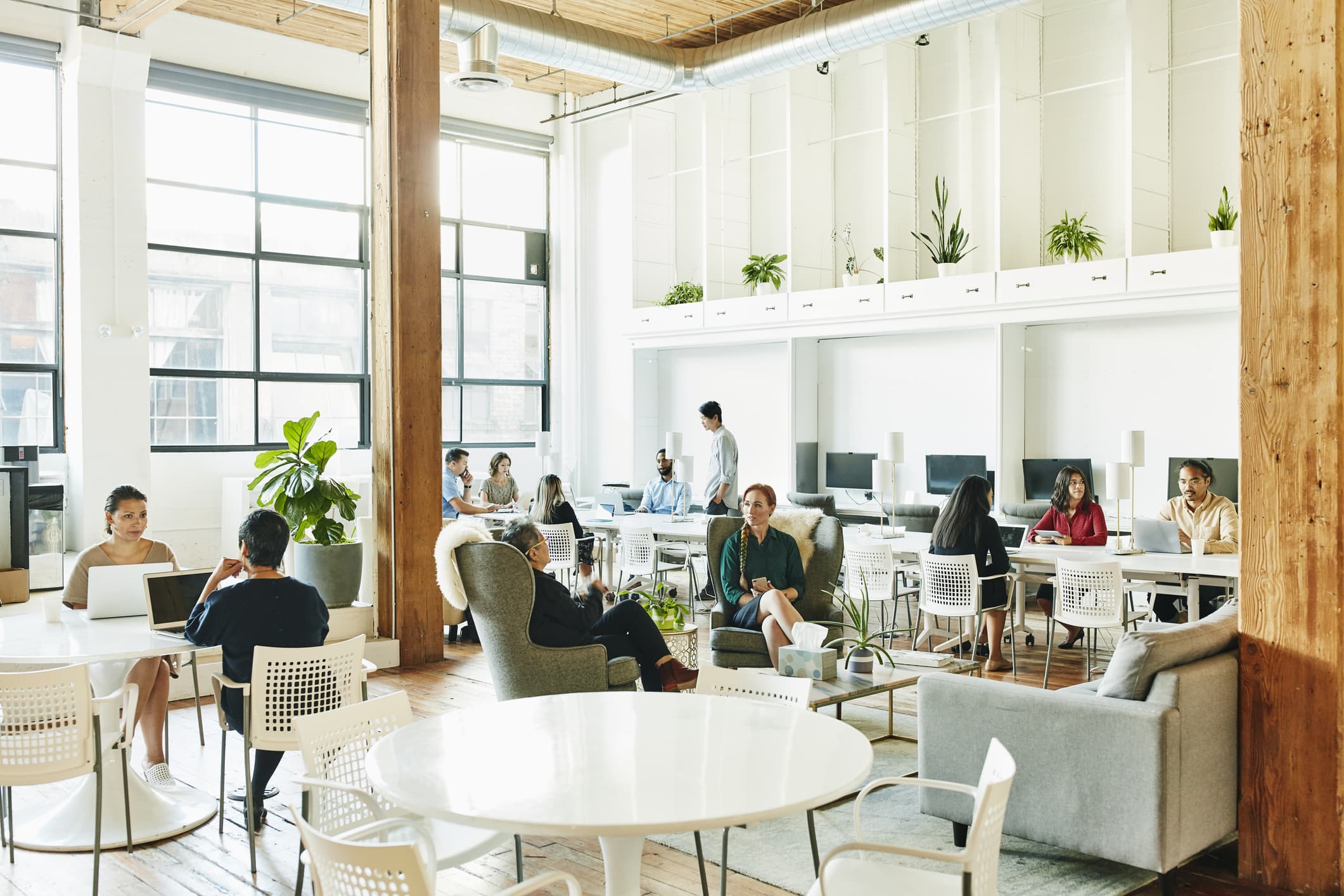It’s a dilemma many companies are facing: How and when to have staff return to the office, when the coronavirus pandemic and lockdowns have meant vast numbers of employees are still working from home.
The CEO of one commercial real estate business says working environments will need to be upgraded to encourage people back — and not just with safety tech such as air quality sensors.
“You have to basically seduce your people to come into the office and work there instead of from home,” said Coen van Oostrom, CEO of real estate developer Edge, who appeared on CNBC’s “Squawk Box Europe” on Monday.
“We believe that it will be the end of the large batteries of people working on a big floor, side to side, even with screens in between, there’s no real need for that any more, you can do your work everywhere … We believe that the office will be the place that you get together, where the culture is being built, where new people are being brought in and can learn and understand the way things are done in a company, but to do so you have to have a work environment that is amazing,” van Oostrom added.
He suggested that elements such as extra staircases could be incorporated as design features so that people could avoid the close confines of an elevator when moving between floors.
More from Our New Future:
Mass training after the pandemic will be ‘one of the defining challenges of our time’: Manpower CEO
Lego CEO says toymaker’s digital future is a 10-year journey
Office space may be treated more like an exclusive club, van Oostom added — and those who don’t go into a place of work may miss out. “If somebody now gets a message, ‘hey, you can work from home, full time, you can stay at home five days a week’, then I would say within five to 10 years, it’s very likely that person will lose his job to AI (artificial intelligence) or being outsourced. If you’re not part of the inner circle of a company and invited to come to that clubhouse, then you’re going to have a very difficult time.”
Van Oostrom’s comments come as Wells Fargo data showed that U.S. commercial properties that are “in trouble” have lost an average 27% of their value, per a Financial Times report on Sunday.
“What we see at the moment is that hotels are doing really bad, retail is not good at all. Offices, the jury is still out. It’s still a big question, how many people are coming back to the office, is this working from home two days a week something that we actually like and will do all the time? We are not sure,” van Oostrom stated. Some companies may have staff come to the office two days per week and will also invest in employees’ home-working setups, he suggested. Businesses may save money by renting less office space, but what they do retain will be of higher quality, he added.
It’s not just offices that will see refurbishments. Homes will also be redesigned so they include better provisions for work, van Oostrom said. “We will see apartment buildings that have one floor like a home office, but not in your home but in your building, so that people don’t have to travel to work but also don’t have to sit maybe with their children in a small apartment,” he stated.
